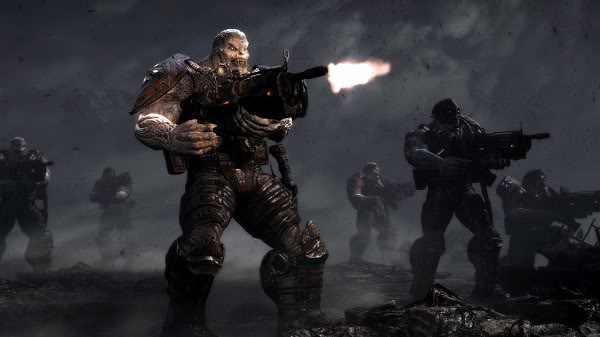This post has not been edited by the GamesBeat staff. Opinions by GamesBeat community writers do not necessarily reflect those of the staff.

Let's discuss review numbers, and Cliff Bleszinski's recent thoughts on certain Gears of War 3 scores. Bleszinski felt it was unfair that a game he views as superior to Gears of War 2 gets gauged lower on certain websites (including a certain "Gamer of the Euro" as he puts it), which also — regardless of the praise this game is getting — lowers the overall Metacritic score.
Most of us already know how treacherous the Metacritic system can be; it only takes a few opinions to degrade a game's reputation. Either way, the numbers should be nothing to freak out about, because plenty of other sites also expressed, in their own words, how amazing Gears of War 3 is. Most review "readers," however, will unfortunately notice numbers before the actual reviews. Some individuals searching the article may only have enough time to seek "the bottom line," while others simply just don't care.
Though Bleszinski resents an 8 out of 10 score (which is still excellent), the fact that other numerous sites gave Gears of War 3 a perfect review is astronomical. I know, they assigned a value smaller than that of Gears of War 2, but that's simply their opinion. Even the Metacritic score — not that it even matters since many consider it a broken method — is still 91 out of 100. Bleszinski even said so himself: Gears of War 3 is better than its predecessors, and dozens of other publications agree with him. Epic's Design Director is still the same amazing developer he always was, so I really don't see why he needs to get worked up over an "awesome, but not perfect" score. Nobody's perfect, and some could only dream of obtaining "Cliffy B" status themselves.

And then we have the irate fans, who need to remember why games are surveyed in the first place. Most reviewers critique hundreds of titles and dissect every little thing about them. The critic's job isn't to read your mind and only support your favorite franchises, but instead warn you of flaws worth avoiding. Simply put, these websites and editors are trying to help you; they're not out on some mission to defame your favorite titles.
Reviews are one person's opinion on the experience, and they simply offer insight on what you're considering as a purchase. Just because they recommend against playing certain games doesn't mean you need to avoid them. I've enjoyed plenty of titles that other critics thought were "abysmal," and their harsh words didn't stop me from finding good in them. At the same time, however, these reports help you discover how terrible controls or glitches are, and could even save you sixty bucks if a game is an incomplete package.
Overall, it's up to the consumer to make an intelligent decision based on the information they gather. There's only so much shallow numbers will tell us about gameplay, graphics, sound, and replay value; everything else exists in the text. Perhaps someday we'll utilize clearer methods for calculating a title's worth.
